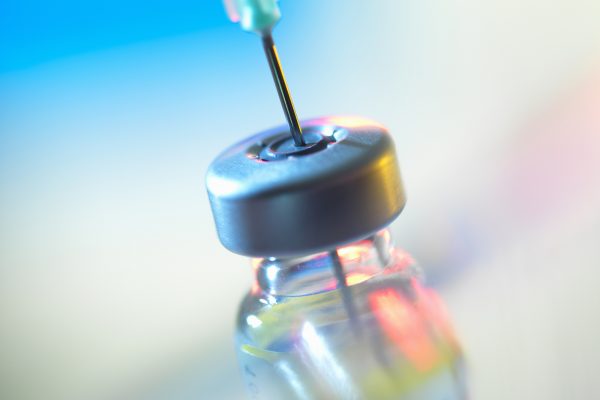
Axicabtagene ciloleucel (axi-cel) previously demonstrated superior efficacy as a second-line treatment of patients with relapsed/refractory large B-cell lymphoma (R/R LBCL) eligible for transplantation. ALYCANTE was the first study to assess the potential of axi-cel as a second line treatment for transplant-ineligible R/R LBCL patients. The findings of this trial demonstrated high response rates to axi-cel, with sustained remissions and an acceptable safety profile. As such, these data support axi-cel as a second-line treatment in patients with R/R LBCL deemed ineligible for transplantation.
Large B-cell lymphoma (LBCL) is the most common type of non-Hodgkin lymphoma (NHL), representing about 30% of all NHL cases globally, with approximately 37,000 new cases in 2020 in Europe.1 Although first-line treatment with rituximab-based chemoimmunotherapy is effective in around 60% of cases, nearly half of patients will eventually relapse.1,2 These patients typically experience unfavourable outcomes, and most patients with relapsed/refractory (R/R) LBCL have no curative treatment options.1 Axicabtagene ciloleucel (axi-cel), an anti-CD19 CAR-T cell therapy, demonstrated superior efficacy over standard care as a second-line treatment for high-risk R/R LBCL patients eligible for autologous stem cell transplantation (ASCT) in the ZUMA-7 trial. However, this study excluded R/R LBCL patients who are ineligible for a treatment with high-dose chemotherapy (HDCT) and an ASCT. These patients represent roughly half of all R/R LBCL cases and they often face a poor prognosis in clinical practice.2 In an effort to address this unmet clinical need, the phase 2 ALYCANTE trial assessed axi-cel as a second-line treatment for transplant-ineligible R/R LBCL patients.
The single-arm phase 2 ALYCANTE was conducted across 18 centres in France and enrolled R/R LBCL patients who received one prior line of therapy and were deemed ineligible for HDCT and ASCT. In total, 62 patients received a single axi-cel infusion at a target dose of 2 × 106 CAR-T cells per kilogram of body weight and were followed up for 3 years after the infusion. The primary endpoint consisted of the complete metabolic response (CMR) at 3 months from axi-cel infusion, with secondary study objectives including objective response rate (ORR) at 3 months from the infusion, CMR at 6 months from the axi-cel infusion, best ORR, best CMR, duration of response (DOR), progression-free survival (PFS) from infusion, OS from infusion and the incidence, nature and severity of adverse events.1,2
The reasons for patients in ALYCANTE to be deemed ineligible for HDCT/ASCT consisted of a higher age (≥65 years, 88.7%), a high haematopoietic cell transplantation-specific comorbidity index score (≥3, 32.3%), and/or a prior ASCT (3.2%).1 The study successfully achieved its primary objective, with a CMR of 71% at 3 months. This compares very favourably to the 12% CMR reported in historical controls for this setting. Remarkably, 59.7% of patients remained in CMR at 6 months. At 3 months post-axi-cel infusion, the ORR stood at 75.8%, with a best objective and complete response (CR) rate of 91.9% and 82.3%, respectively. The median PFS from infusion was reported at 11.8 months, with 48.8% of patients being alive and free of progression at 12 months. The median OS was not yet reached at the time of the analysis, with an OS rate of 78.3% at 12 months. Despite the fact that patients in the study were considered unfit for HDCT/ASCT, axi-cel infusion proved to be associated with an acceptable safety profile, with rates of grade 3-4 cytokine release syndrome and neurologic events of 8.1% and 14.5%, respectively.
In conclusion, axi-cel as a second-line treatment resulted in high response rates and durable remissions in high-risk, transplant-ineligible R/R LBCL patients. Despite the advanced age of patients and the presence of comorbidities, axi-cel came with an acceptable safety profile in this study. Together, these results support axi-cel as a second-line treatment in patients with R/R LBCL deemed ineligible for HDCT/ASCT.
References